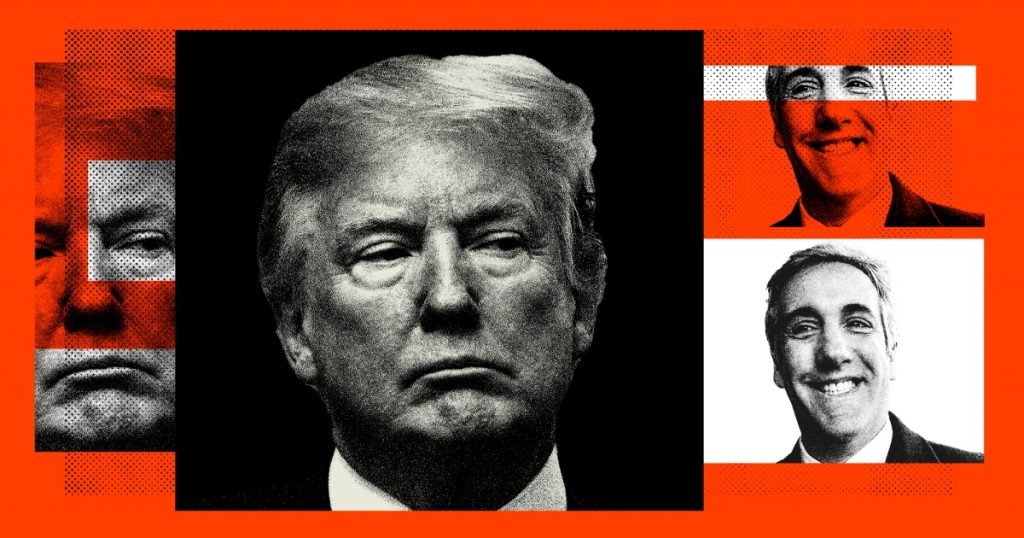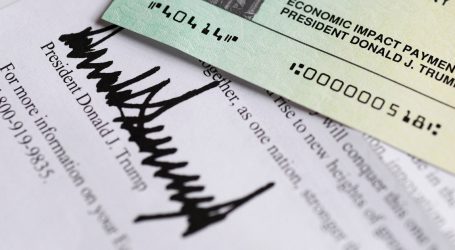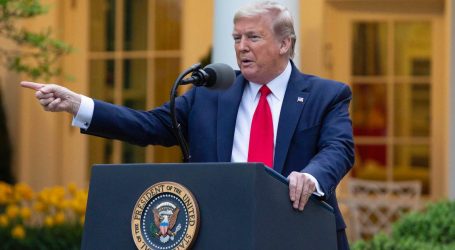Donald Trump’s Lawyers Just Made a Big Mistake
Mother Jones; Patsy Lynch/MediaPunch /IPX/AP, Mary Altaffer/AP
Fight disinformation: Sign up for the free Mother Jones Daily newsletter and follow the news that matters.Last week, when Donald Trump filed a $500 million civil lawsuit in federal court against his former lawyer and fixer Michael Cohen, legal experts scoffed and guffawed. Trump’s suit accused Cohen of breaching confidentiality and “spreading falsehoods” about the former president—that is, ratting out Trump. The timing of the filing was suspicious, given that it came shortly after Trump was indicted in the porn-star-hush-money case for which Cohen is a key witness. It seemed an act of revenge on Trump’s part. The Florida attorney Trump retained for this effort, Alejandro Brito, is a specialist in franchise disputes (not half-billion-dollar high-stakes cases), and the complaint was written in a bombastic and amateurish manner often associated with many of Trump’s legal efforts.
The lawsuit raised the boomerang-ish prospect of Cohen winning the opportunity to submit Trump to the discovery process and obtaining documents and testimony from the former failed casino operator. Beyond this misstep, Trump committed another strategic blunder with the complaint: He inadvertently bolstered the accusation that he was involved in the $130,000 payoff to Stormy Daniels at the time Cohen made the payment to keep the adult film star from publicly alleging before the 2016 election that she had an extramarital affair with Trump.
The background: In 2018, Cohen pleaded guilty to a variety pack of federal charges, including violations of campaign finance law related to the Daniels hush-money episode. He subsequently spent a year in a federal prison and then a year and a half in home confinement. Now Cohen is a central witness in New York district attorney Alvin Bragg’s criminal investigation that led to the indictment of Trump for allegedly falsifying business records to cover up the Daniels payment and other so-called “catch and kill” operations during the 2016 election. If this case reaches a trial—no doubt, Trump’s lawyers will try to prevent that—Cohen won’t be the only witness, but he will be the star witness. Discrediting Cohen and his testimony will be Job No. 1 for Trump.
Cohen’s story is that Trump was fully aware of the payment to Daniels when the details of this deal were being hammered out in the closing weeks of the campaign. Cohen maintains Trump was informed of the arrangement and approved the amount. When news of the hush-money accord first emerged in early 2018, Trump claimed he knew nothing about it. Later, his team said that Trump had learned about the agreement only after the election and had then reimbursed Cohen for the payments. It insisted Cohen had pulled this off at his own initiative.
To keep Trump out of the initial plot to silence Daniels, his lawyers and mouthpieces have mounted a fierce campaign to discredit Cohen (though there are other witnesses who can testify whether Trump was involved from the get-go). They have pronounced Cohen a liar whose account cannot be trusted. Indeed, Cohen did plead guilty to lying to Congress, making false statements to a bank, and tax evasion. Trump’s complaint against Cohen refers to him as a “serial liar” and a “totally unreliable” person who has “great difficulty telling the truth.”
But here’s where Trump’s legal team made an unforced error. In its effort to portray Cohen as deceitful, the complaint cites the sentencing memorandum submitted by the office of the US attorney for the Southern District of New York in Cohen’s criminal case. Seeking a tough sentence for Cohen, the prosecutors contended that Cohen had exhibited “a pattern of deception that permeated his professional life” and that his crimes involved “deception, and each were motivated by personal greed and ambition.” Those quotes are highlighted in Trump’s complaint, which also cites a public statement SDNY issued that slammed Cohen “as a lawyer who, rather than setting an example of respect for the law, instead chose to break the law, repeatedly over many years, and in a variety of ways.”
Looking to depict Cohen as a dishonest no-goodnik, Brito presents the SDNY’s sentencing memo as an important and credible source. Yet on page 11 of that 40-page document is a sentence that is highly problematic for Trump: “In particular, and as Cohen himself has now admitted, with respect to both payments, he acted in coordination and at the direction of Individual 1.”
Individual 1 is Trump, and the payments refer to the funds slipped to Stormy Daniels and money paid to a former Playboy model named Karen McDougal by the National Enquirer to smother her story of an affair with Trump. With this sentence, the feds declared that Trump was an instigator and co-conspirator in the illegal Stormy Daniels hush-money caper. (By the way, as I explained here, Trump’s Justice Department and then–Attorney General Bill Barr impeded further investigation of the Daniels case after Cohen pleaded guilty—a move that certainly was beneficial to Trump.)
Brito doesn’t mention this incriminating sentence in the complaint against Cohen. But by referencing this document as a reliable source of information, he is lending credence to a document that undermines his client’s position in the ongoing criminal case. He is citing a memo that plainly stated that Trump conspired with Cohen to commit a crime at the heart of Bragg’s case. This is not good lawyering.
In similar fashion, the complaint against Cohen also cites a separate sentencing memo submitted by special counsel Robert Mueller that noted Cohen had made “deliberate and premeditated” false statements to Congress. But Brito’s complaint also leaves out key elements of this document. The memo stated that Cohen lied to Congress to protect Individual 1—yes, Trump—and to downplay Trump’s clandestine attempt during the 2016 race to land a huge deal for a tower in Moscow that could have netted him hundreds of millions of dollars. Mueller’s memo also said that Cohen, who cooperated with his investigation, provided information that was “credible and consistent with other evidence.” It reported that “Cohen has taken responsibility for his wrongdoing” and told the judge this should be “a significant mitigating factor” in sentencing. That is, Cohen deserved a break for being a credible witness.
By basing part of Trump’s lawsuit against Cohen on these two memos, Brito clumsily endorsed investigations that concluded that Trump was in on the Stormy Daniels skullduggery, that when Cohen lied to Congress he did so to protect Trump’s covert business dealings with Russia, and that Cohen was a reliable source of information for Mueller. None of that is helpful for Trump’s defense in the hush-money case. This filing is yet the latest sign that when it comes to recruiting legal firepower, Trump still has trouble finding the very best people.





